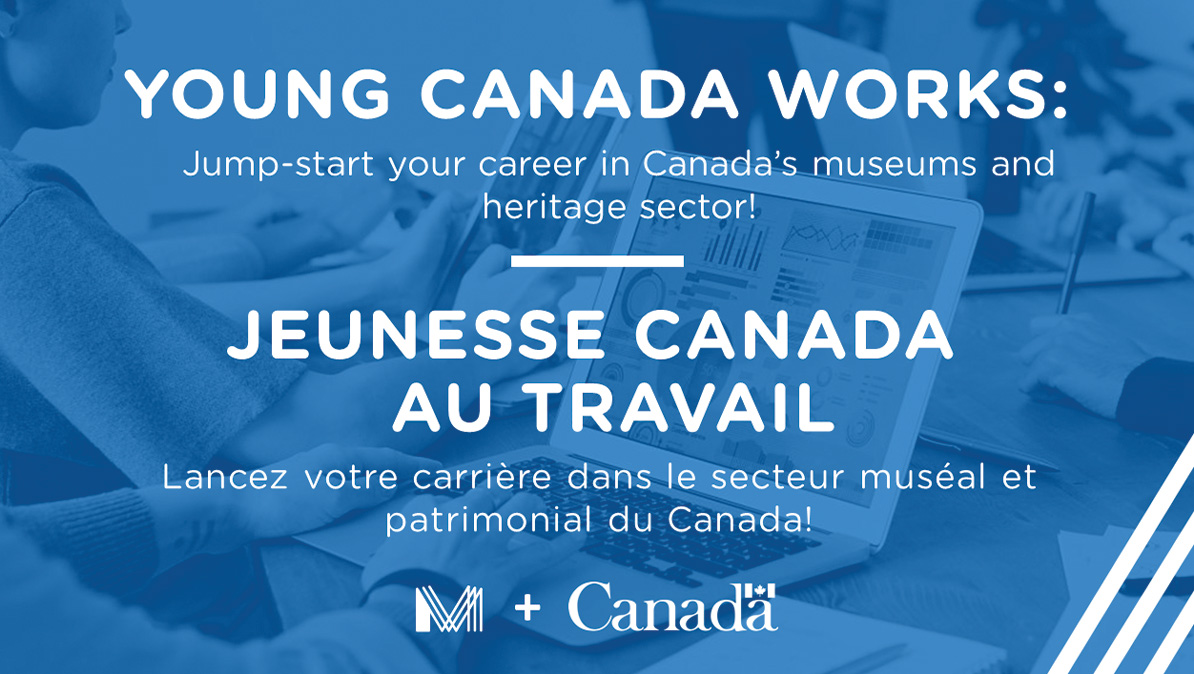
Have you heard about Young Canada Works?
Louise Pitre
One of the weaknesses of the Young Canada Works (YCW) program is that not enough eligible youth are aware that it exists or of its benefits. Over the past two years, the Canadian Museums Association (CMA) has been working hard to address this issue. We formed an internal promotions team that works to make both potential YCW employers and candidates aware of the details of both streams administered by the CMA. Since we recently passed the deadline for employers to apply for YCW funding for the 2022-2023 intake year, we have turned our attention to youth applicants who are now eligible to apply for YCW positions in the museum and heritage sectors.
While the number of possible YCW employers is limited by the number of eligible Canadian heritage organizations, and it’s possible to identify and contact all of these, the number of eligible youths that could potentially benefit from the program is much higher. Currently, YCW positions are posted on Canadian Heritage’s YCW job board and posted wherever employers choose to advertise. The Government of Canada does not actively promote the program; this is left up to the YCW delivery organizations. The Canadian Museums Association has been a proud YCW delivery organization for 25 years during which time the program has adapted, changed, and grown. Young Canada Works is driven by demand from the museum sector and the youth who participate in it. One of our main goals in the YCW promotions team is to ensure that the value of the program is clear to all participants.
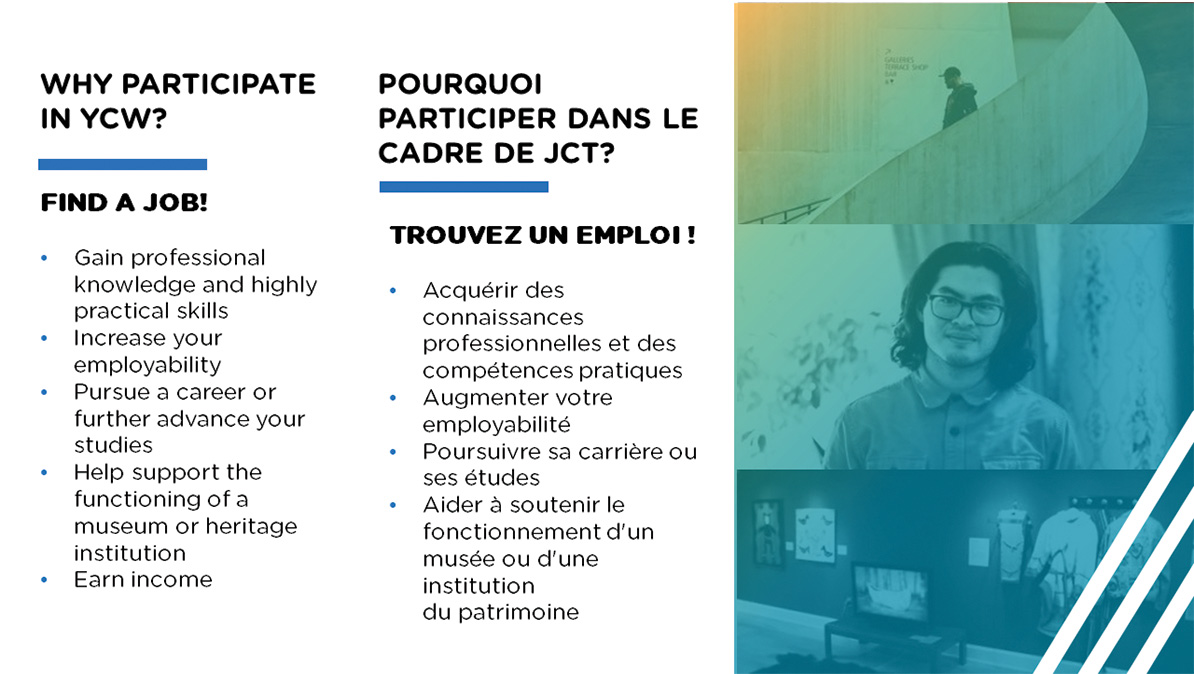
The eligibility criteria vary slightly between the two streams, as one is designed for current students and the other for post-secondary graduates, but any Canadian Citizen, Permanent Resident or those with refugee status who are 30 years old or under at the start of the work term are potentially eligible. The chances are that many who fit these criteria aren’t aware that these positions are available to them. While we can’t reach all eligible youth in Canada, we have been making efforts to contact current post-secondary students and recent graduates. I have been contacting university departments, across disciplines, to offer to host information sessions for their undergraduate and graduate students. The CMA also held an open session for all interested youth at the end of March, just in time for end-of-semester decision making. We want to open a dialogue, take questions, and address concerns about the program so that eligible youth are fully aware of the benefits of the program.
Since I started as a YCW program officer just under three years ago, the program has adapted to meet the needs of participants. For instance, YCW in Heritage Organizations positions can now take place any time of year, not just during the summer months; part-time work can be accommodated for both the HO and BCH streams (although full-time is still preferable); the restriction on having to have graduated within the past 24 months in order to participate in the internship program has been removed, as has the restriction on repeating internships. Other benefits include the potential to reimburse travel costs when a student or intern needs to travel more than 125km for work and helping to fund any accommodation an employer needs to make to ensure all have access to jobs. In addition, as a team, the CMA’s YCW program officers will always try to accommodate as much as possible the needs of a youth participant or organization to ensure that the program provides the maximum possible benefit. We consider YCW to be more than just a funding program; we try to ensure that our youth participants have a valuable experience that develops their skills and helps provide an entry point into a career within or outside of the heritage sector.
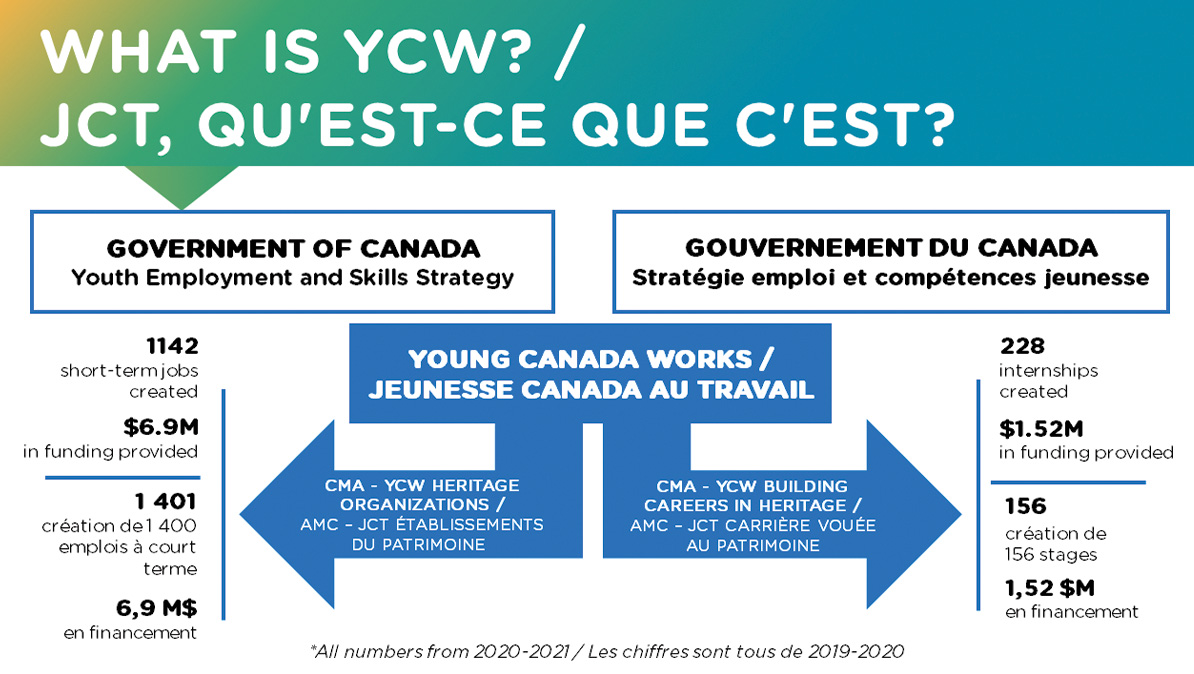
We have been trying to broaden the reach of the program beyond those who may not have considered a future as a museum professional. We want to acknowledge the breadth of skills that are relevant to museum work. Our Young Canada Works BCH interns and HO students come from all academic backgrounds—education, communications, graphic design, STEM, history, English, indigenous studies, just to name a handful. All bring skills that are relevant to museum and heritage work. Kihan Yoon-Henderson, a 2021-2022 BCH intern with BC’s Hornby Island Natural History Centre, for instance, graduated from a Geography program. I spoke with her supervisor recently who had glowing words about Kihan’s contribution to the Centre. Susan Hoppenfeld had the following to say about the Centre’s YCW-BCH intern: “Kihan continues to bring ideas about how we might consider beginning to decolonize the Hornby Island Natural History Centre, and what it means to build relationships with Indigenous communities. Her ability to make those ideas visible and manifested both in the layout and in text in our new exhibition is nothing short of remarkable”. YCW Building Careers in Heritage interns and Heritage Organizations students from all backgrounds contribute so much to their roles and prove themselves beneficial to the organizations where they work. One of the slogans from our current YCW promotion ad campaign is “See Yourself Here” because we want to encourage those who may not have considered themselves as “museum professionals” to consider bringing their perspectives and skills to the heritage sector.
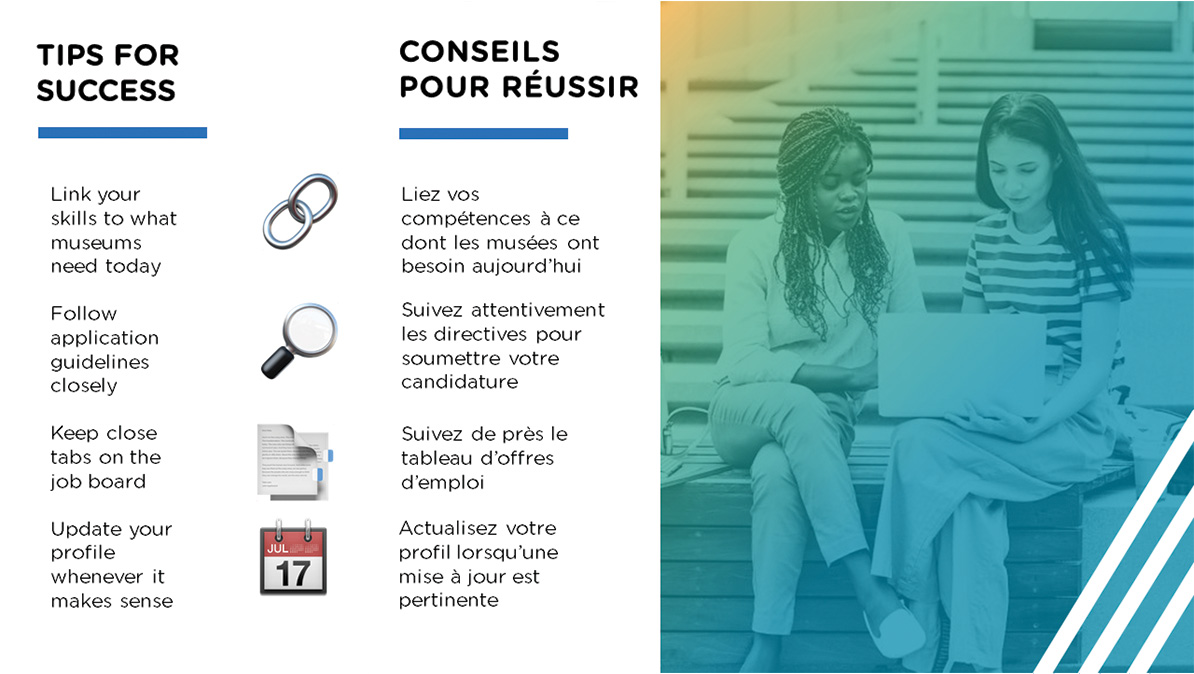
As a YCW program officer, I have heard many employers complain that they had too few applicants for their positions and either request to cancel or delay the start date of their positions—resulting in a loss of income for the youth participants and less chance of getting the project completed for the museum. We hear often that, if anything, the work terms are too short, so having to shorten a work term because of difficulty in finding candidates is unfortunate but avoidable. We want to encourage as many eligible youth as possible to visit the YCW website, create a profile, and browse the available jobs. Even if you are not thinking of a career in museums, you can find a rewarding position that might make you consider museum work as a profession. In any case, museum skills are applicable in the work world outside of museums. Museums are an integral part of our communities. The work done there is relevant beyond the walls of the museum. M
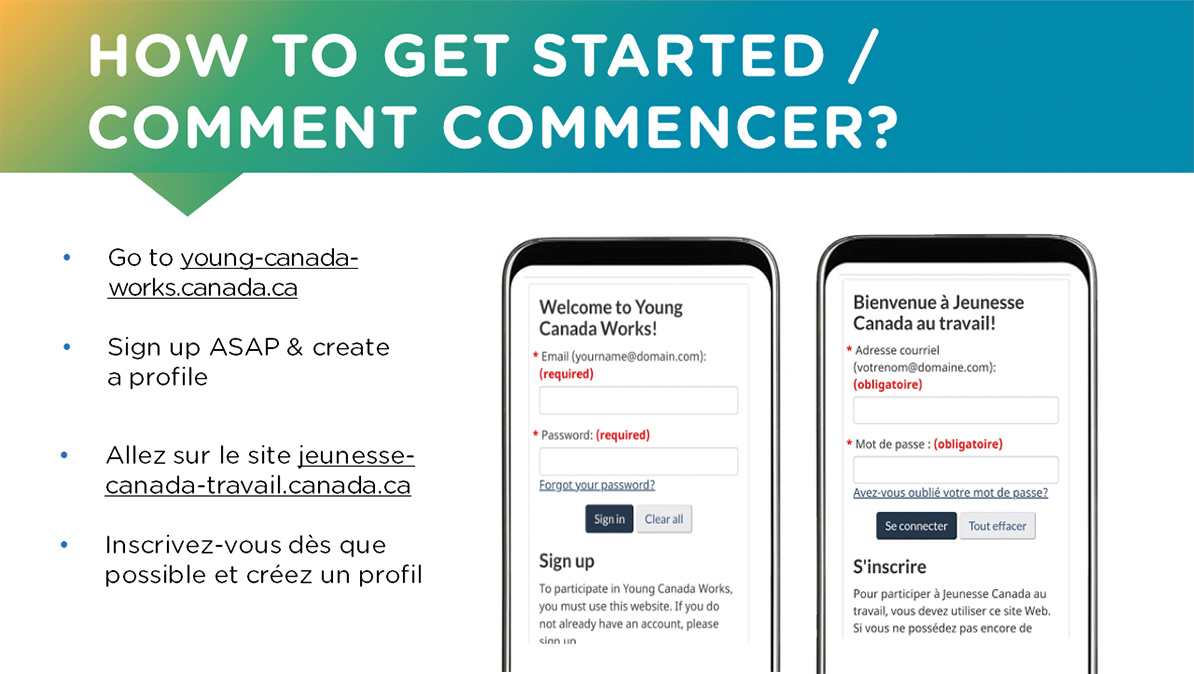
Louise Pitre is a Young Canada Works Program Officer with the Building Careers in Heritage Stream and the YCW Communications Liaison for the Canadian Museums Association.
